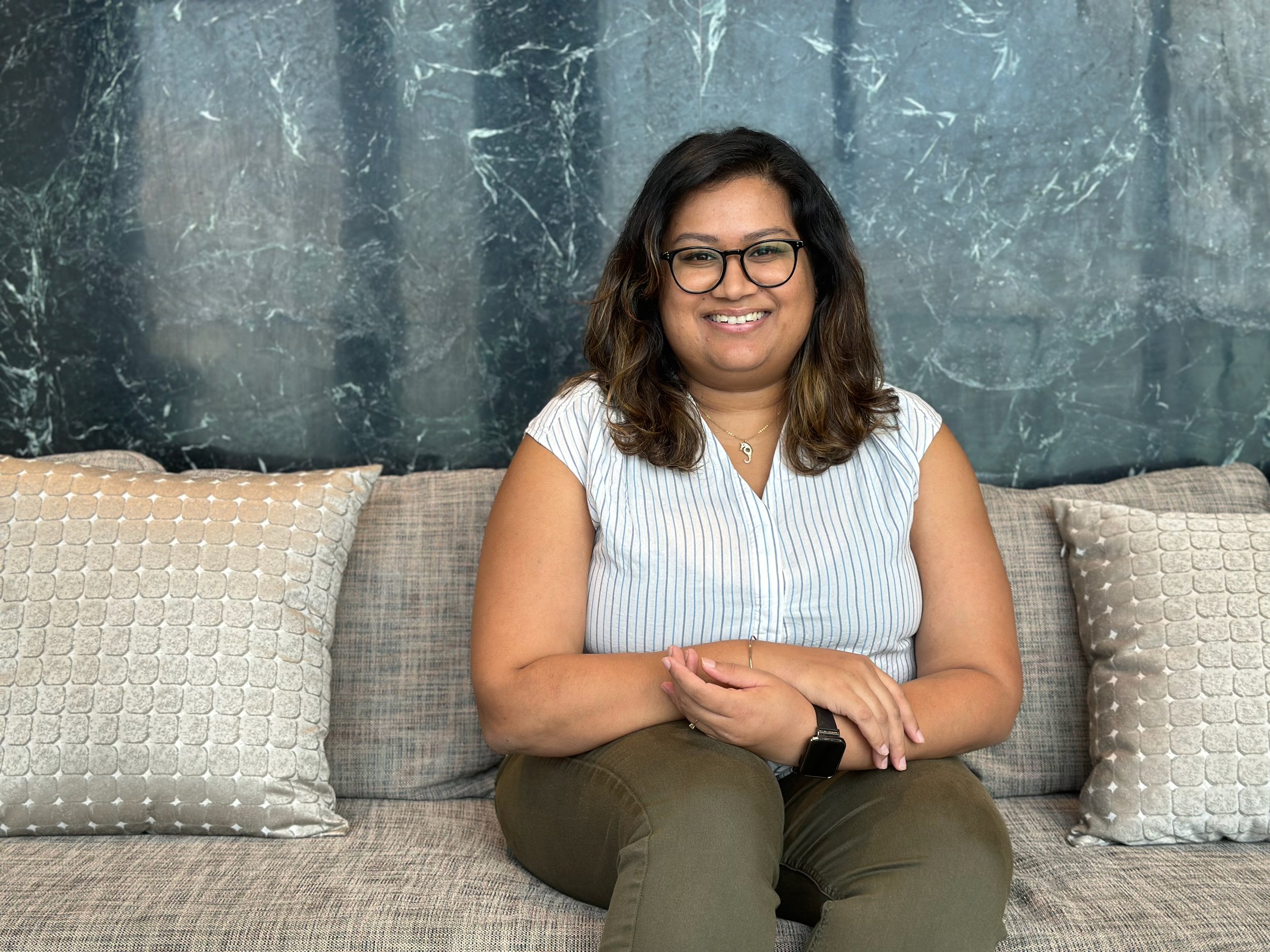
Therapy for Anxiety
You deserve support from someone who cares.
It’s normal to feel anxiety.
Anxiety is a natural response that helps us to be alert and ready to respond to challenging situations, which can be helpful in helping us stay focused, motivated, and make better decisions. For example, feeling anxious before an important exam or presentation can help to increase focus and motivation. While unpleasant, minor anxiety is normal to experience.
However, when anxiety becomes excessive, persistent and disrupts daily activities, it may be considered as abnormal anxiety or an anxiety disorder. It's important to note that everyone's experience of anxiety is different and what might be considered normal for one person may not be for another.
If you are experiencing symptoms of anxiety that are causing significant distress or impairment in your life, reach out today for a free discovery call and let’s work together to manage and overcome your anxiety.
Benefits of therapy for managing anxiety
Personalized Support: Therapy sessions are tailored to your individual experiences with anxiety. We’ll create a plan together to reach your specific goals to and build a happier, healthier life.
Develop Coping Strategies: Therapy equips you with practical skills to handle anxiety-provoking situations. You’ll learn to challenge negative thought patterns, develop problem-solving skills, and employ relaxation techniques.
Reduced Symptoms of Anxiety: Therapy can help reduce the intensity and frequency of anxiety symptoms. Through various therapeutic techniques, you’ll learn to manage and cope with anxiety, leading to fewer panic attacks, reduced worry, and a calmer state of mind.
Enhanced Self-Understanding: During therapy, you’ll gain a deeper understanding of the underlying causes of your anxiety. This self-awareness can help you recognize triggers and patterns, allowing you to better combat your anxiety.
I offer Support for various types of anxiety
There are many different types of anxiety disorders, each with their own specific symptoms and characteristics, and some people might have symptoms of more than one disorder.
I have extensive experience working with individuals affected by a range of anxiety disorders, and provide a safe and supportive space in which we can work together to manage and overcome your anxiety.
-
Generalized anxiety disorder is characterized by excessive, unrealistic worry and tension about everyday events and activities.
-
Panic disorder is characterized by sudden and unexpected panic attacks, along with feelings of apprehension, fear, or terror.
-
Social anxiety disorder is characterized by intense fear, self-consciousness, and embarrassment in social situations.
-
Specific phobias are characterized by excessive fear and avoidance of specific objects or situations, such as heights or closed-in spaces.
-
PTSD is characterized by intense anxiety, flashbacks, and avoidance behaviors related to a traumatic event.
-
OCD is characterized by persistent, recurring thoughts (obsessions) that lead to repetitive behaviors (compulsions).
-
Separation anxiety disorder is is an exaggeration of otherwise developmentally typical anxiety manifested by excessive concern, worry, and even dread of the actual or anticipated separation from an attachment figure.
Psychotherapist, Ed.M., M.A., LMHC
I’m Sharmishtha, a licensed mental health counselor, and I’m here to join you on the path to a healthier, happier you.
As a therapist specializing in helping individuals like you deal with issues relating to anxiety, I'm dedicated to providing a safe and supportive space where you can explore, grow, and thrive.
With a commitment to helping others unlock their full potential, I've made it my mission to guide you on your journey towards greater peace and fulfillment.
My hope is that in working with me, you feel comfortable enough to explore the complexities of day to day struggles, and be empowered to make positive changes.

Frequently Asked Questions
-
I work well with individuals who are struggling with some aspects of their lives and are motivated to find different ways of relating to themselves and others.
Some of the concerns that we could explore together include:
Stress, worry, and anxiety
Self-esteem and self-confidence
Relationship difficulties
Healing from abuse and trauma
Difficulty with cross cultural experiences
Grief
Life transitions of any kind
-
You will have a 15 minute discovery call with me to make sure we are compatible. We will discuss your reasons for seeking therapy, goals you may have, and what you are looking for in an effective therapist. We will also make sure we are a good fit in terms of fees and schedule availability.
Our first few sessions will be about getting to know you better, setting some goals or areas of focus, and just getting into the rhythm of our therapeutic work together. From there, some people choose to pursue short-term therapy, often focused on resolving a specific issue. Others may benefit from a longer term approach, allowing for deeper work that allows me to help you to move forward and establish strong foundations for long-term change.
-
If you are in Singapore, I offer in-person sessions at Peninsula Plaza (City Hall MRT).
If you’re outside of Singapore, or if you simply prefer virtual sessions, we can meet online.
It’s important to ensure that you have a stable, strong internet connection and a quiet, private space to attend sessions virtually, in order to have the most positive and effective experience of therapy.
-
My fee is SGD$190 per 50 minute sessions.
I also offer a sliding scale based on your individual circumstances. We’ll discuss in our free consultation call.



